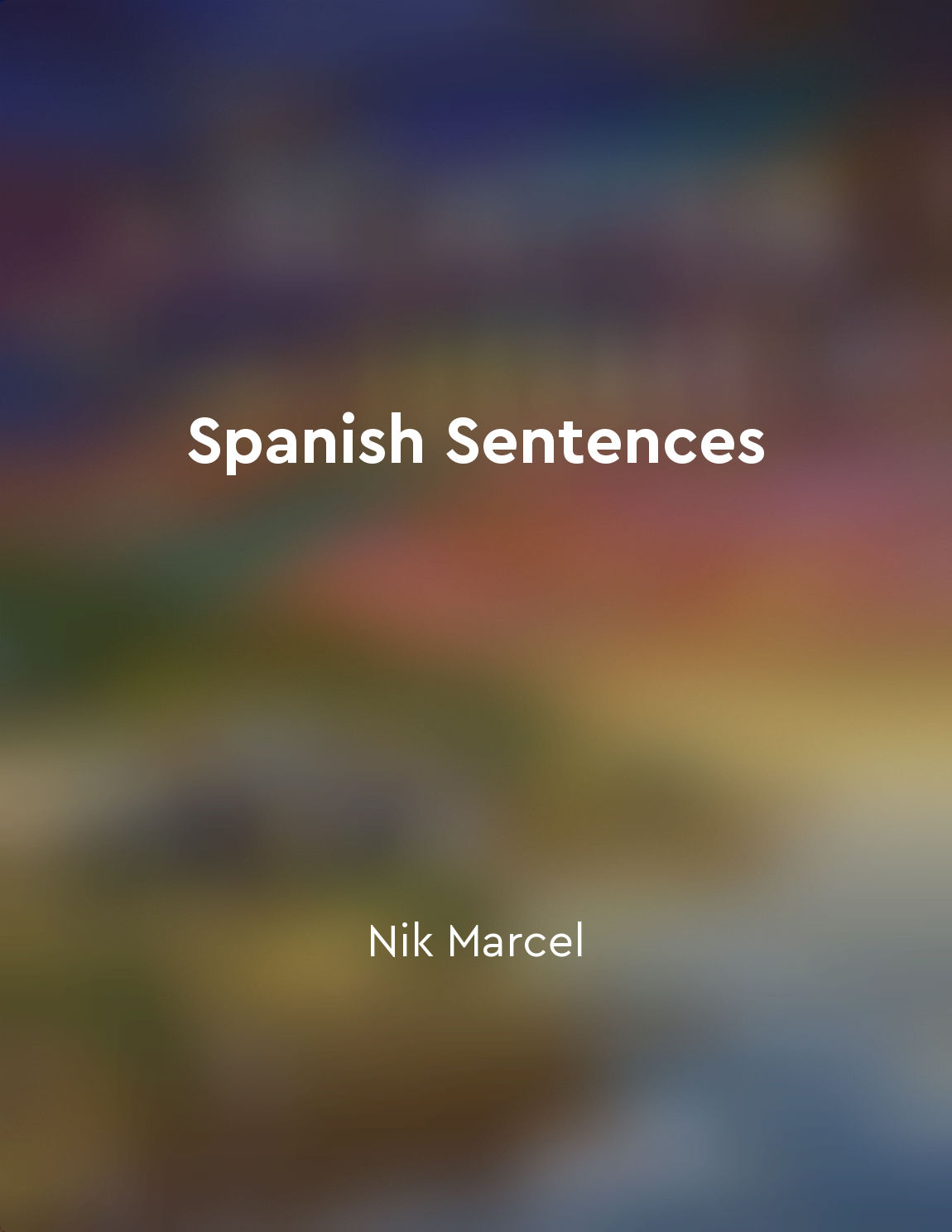Audio available in app
Conditional tense in Spanish is used to express hypothetical situations from "summary" of Spanish Sentences by Nik Marcel,Robert P. Stockwell,J. Donald Bowen,Ismael Silva-Fuenzalida
The conditional tense in Spanish allows us to talk about hypothetical situations. This means that we can discuss events or actions that may or may not happen, depending on certain conditions. For example, we might say, "If I had more money, I would travel around the world." In this sentence, the speaker is expressing a hypothetical situation - they do not currently have enough money to travel, but if they did, they would do so. In Spanish, the conditional tense is formed by adding the appropriate endings to the infinitive form of the verb. For regular verbs, this involves adding the endings -ía, -ías, -ía, -íamos, -íais, and -ían to the infinitive. For example, the verb hablar (to speak) would become hablaría, hablarías, hablaría, hablaríamos, hablaríais, and hablarían in the conditional tense. In addition to expressing hypothetical situations, the conditional tense can also be used to make polite requests or suggestions. For instance, we might say, "Would you like to go to the movies with me?" This use of the conditional tense indicates politeness and softens the request. It is a common way to make suggestions or ask for something in a more polite manner. Furthermore, the conditional tense is often used in if-then statements to talk about potential outcomes. For example, we might say, "If it rained, I would stay home." Here, the speaker is discussing what they would do if a certain condition (rain) were met. The conditional tense allows us to explore different possibilities and outcomes based on specific conditions.- The conditional tense in Spanish is a versatile tool that allows us to discuss hypothetical situations, make polite requests or suggestions, and talk about potential outcomes. By mastering the conditional tense, we can communicate more effectively and express a wider range of ideas and possibilities in our conversations.


